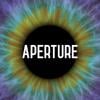
Berkeley-based West Edge Opera has quietly become a prolific incubator of new work. The last time SF Classical Voice reported on the company’s Aperture development project, which it started during the pandemic shutdown, the leadership said WEO would consider shepherding new operas as funding became available. This past week, the company announced yet another commission, L’autre moi by librettist Stephanie Fleischmann and composer Matthew Recio. This is a work that was first developed in the initial Aperture program two years ago.
West Edge Opera General Director Mark Streshinsky said, “Who would have thought that our online project, Aperture, would evolve our company into one that regularly commissioned new operas? The pandemic changed how we operate and what we create. New opera commissions are the best kind of silver lining for what we all went through, and I’m very proud of our company for doing them.”

L’autre moi tells the story of Claude Cahun and Marcel Moore: female lovers, Jewish activists, and surrealist photographers who used their art to magnify resistance against Nazi Germany. Librettist Fleischmann found the subject irresistible: “When I first came across the iconic image of Claude Cahun in boxing garb, with the words ‘Don’t kiss me, I’m in training’ inscribed across their chest, I felt I had found my hero. … Larger than life, infused with a dream logic and a heightened, angular theatricality, their story was crying out to be opera.”
Fleischmann won Opera America’s newly instituted Campbell Librettist Prize in 2022, and the Bay Area will see her work imminently in her contributions to Dawn Upshaw and the Brentano String Quartet’s “Dido Reimagined.” Recio, meanwhile, just finished his stint in the Vanguard Emerging Opera Composer Program at Chicago Opera Theater, where he developed work with Fleischmann and another well-known librettist, Royce Vavrek. Recio is a well-established Chicago composer with lots of awards and commissions under his belt.
L’autre moi joins the first Aperture commission, Dolores, by Marcella Martin Koch and Nicolas Lell Benavides, and a non-Aperture opera, Bulrusher, by Eisa Davis and Nathaniel Stookey, as works being developed by West Edge. And there is yet another opera, yet to be named, that is in the pipeline, if funding comes through. That’s a lot of new work from a small-to-medium sized company.

And, of course, all of that is on top of the company’s regular Snapshot program, running March 18 at the Hillside Club in Berkeley and March 19 at the Taube Atrium Theater in San Francisco, which is scheduled to feature scenes from new operas as follows:
The Limit of the Sun, by composer Luna Pearl Woolf and librettist Andrea Michelle Stolowitz, about a Mideastern terrorist and his American hostage dealing across the globe with the hostage’s mother and a U.S. Federal agent working for his rescue.
Port City, by composer Byron Au Yong and playwright Christopher Chen, an opera set in a post-pandemic, post-tech San Francisco, where neurological systems turn into memory maps.
When Purple Mountains Burn, by composer Shuying Li and librettist Julian Crouch, which explores the ineradicable terror of the Nanjing massacre (of over 200,000 Chinese civilians by the Japanese Army in early World War II) and how that horror fatally damaged the lives of two observers: surviving participant Shiro Azuma and a later generation reporter, Iris Chang.
The Morpheus Quartet, by composer Beth Ratay and librettist John Glore, revealing the hidden dreams transpiring simultaneously in the minds of the string players: a crush on a colleague, a daydreamed car crash, deceased beloveds, and ideal beauty.
The quality of the artists involved is your first indication of how important West Edge’s role in shepherding new work to the stage might be. The final proof will be in the pudding, as they say, but even on paper, this is an astonishing array of opera and artists who deserve support.


